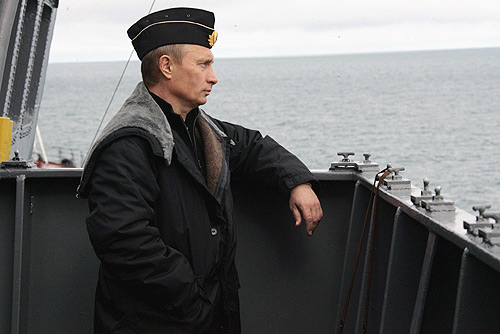Russia has proposed a significant increase in bilateral trade with Burma, expecting to reach US$500 million and establish itself as a prominent trade partner.
An agreement was signed between Russian Economic Development Minister Alexei Ulyukayev and his Burmese counterpart in Naypyidaw on 29 August.
The increase in trade, which the minister predicts will rise from US$114 million to US$500 million a year by 2017, is expected to boost development across sectors such as energy, industrial development, information technology and aviation, among others.
At $500 million, the agreement seems to be of crucial importance to Burma, considering that it is almost equivalent to one percent of the country’s total GDP. The funds are aimed at inter-governmental economic cooperation, according to state-run The New Light of Myanmar.
Burma’s Minister of National Planning and Economic Development Dr. Kan Zaw explained the significance of the agreement with Moscow, telling RIA Novosti how development in Burma will be accelerated hereafter. “[A] long history of friendship and cooperation with Russia has aided Burma in development across sectors in the past,” he said.
Colin Sollit, a Johns Hopkins University scholar of Russian affairs, told DVB that, “This trade commission is both an advertisement for Russian trade and a ‘toe in the water’ for Russian banks.”
With the increasing severity of proposed trade sanctions against Russia by US and European Union, the possibility of Russia strengthening diplomatic relations with Asian countries seems to be a feasible option.
“With the new sanctions against Russia and Russian banking in particular, Russian financiers have lost a lucrative and low-risk venue in the EU for Russian-underwritten debt and Russian-funded equity. Burma can be seen as lucrative, but it is yet to be determined if it is low-risk,” said Sollit.
[related]
Russia, the world’s second largest arms exporter, has also undertaken to boost arms trade with Burma, following the loss of its conventional markets and the war in the Middle East. Earlier in March, a visit by Russian Defense Minister Sergie Shoigu served as a precedent to boost defense ties with Burma. Of the 60 Russian companies that attended the first trade commission on 29 August, present also was state-owned United Aircraft Corporation, which sells MIG 29s to the Burmese air force through its subsidiary Mikoyan.
Russia has long fostered good diplomatic relations with Burma, being the only other UNSC member along with China to veto interference in the country’s internal affairs in 2007.
The bilateral agreement may come as no surprise to observers considering the long-standing political and economic influence that Russia has enjoyed in Burma during the course of decades-long Western sanctions.
Another precedent of the bilateral agreement would be the investment in Burma by Russian oil company Bashneft. Earlier in August, Bashneft signed a production sharing contract with Myanmar Oil and Gas Co and Sun Apex holdings. With an investment reported to be around US$38.3 million, Bashneft will own 90 percent of the operation, according to RIA Novosti.
Sean Turnell, professor of economics at Australia’s Macquarie University, explained potential motivations behind the boost. Turnell told DVB that “Russian firms might have a comparative advantage in investing in Myanmar’s energy sector, not least since they are well-experienced in operating in both physical extremes and institutional and policy uncertainty.”
With a history of resource exploitation, it remains to be seen whether Burma is competing in a race to the bottom by increasing foreign investments in the energy sector.
Though Russia may seem to be a late entrant into the Burmese energy sector, it could also be perceived as a calibrated move, considering the vast Chinese investment in the country.
Rajeev Sharma, a strategic analyst and journalist, told DVB that, “Russia would not like to be seen as rocking China’s boat. Russia has much at stake with China, economically and strategically, which it would not like to fritter away for Myanmar.”
Moscow’s bid to invest in Burma also emerged at an hour when foreign investment seems to have gained momentum at an accelerated pace.
The Burmese economy, once stagnant under socialist policies and dominated by state-owned industries, has recently opened up as a new frontier for foreign investment.
The country has since become a playground for major players. Western superpowers such as the United States and the European Union, who hitherto adhered to the economic sanctions imposed upon Burma, are now rushing in and expanding trade boundaries. Moscow’s attempt seems a natural attempt to reinforce its sphere of influence.
Sharma suggested that, “Increasing bilateral trade to $500 million per year by 2017 from the current $114 million is a political signal from Russia that it wants to step into this once iron-curtain country in an incremental manner… Moscow would like to emerge as an effective player in Myanmar when the country is opening up to foreign powers. Russia would like to be present wherever the US is”.



